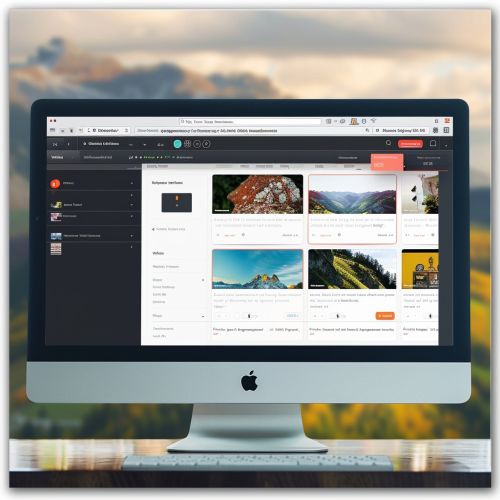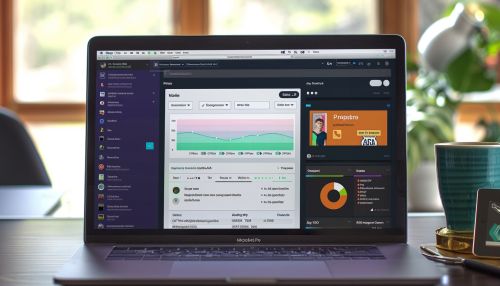Blogger (service)
Overview
Blogger is a web-based content management system (CMS) that facilitates the creation and maintenance of blogs. Initially developed by Pyra Labs in 1999, it was later acquired by Google in 2003. Blogger is one of the earliest dedicated blog-publishing tools, and it remains a popular platform for both personal and professional blogging. The service is notable for its user-friendly interface, integration with other Google services, and the ability to host blogs on a custom domain.
History
Blogger was launched by Pyra Labs in August 1999. At the time, it was one of the first tools dedicated to blogging, which contributed significantly to the popularization of the format. The acquisition by Google in February 2003 marked a significant milestone, leading to a series of enhancements and integrations with other Google services such as Google AdSense, Google Analytics, and Google Drive.
Early Development
The initial version of Blogger was a simple, text-based interface that allowed users to post content to their blogs. The platform quickly gained traction among early adopters of the blogging trend. The acquisition by Google enabled the development team to introduce several new features, including a more robust content management system, customizable templates, and enhanced security measures.
Integration with Google
Post-acquisition, Blogger underwent significant changes to integrate seamlessly with other Google services. This included the introduction of Google AdSense for monetization, Google Analytics for tracking visitor statistics, and Google Drive for media storage. These integrations made Blogger a more versatile and powerful tool for content creators.
Features
Blogger offers a wide range of features designed to simplify the blogging process. These features include customizable templates, a user-friendly interface, and various tools for content management and promotion.
Customizable Templates
One of the standout features of Blogger is its extensive range of customizable templates. Users can choose from a variety of pre-designed templates or create their own using HTML and CSS. This flexibility allows bloggers to create a unique look and feel for their sites.
User Interface
The user interface of Blogger is designed to be intuitive and easy to navigate. The dashboard provides quick access to all essential functions, including post creation, comment management, and analytics. The WYSIWYG (What You See Is What You Get) editor simplifies the process of formatting text and adding media to posts.
Content Management
Blogger includes several tools for managing content, such as post scheduling, labels for categorization, and an integrated comment system. These tools make it easier for bloggers to organize their content and engage with their audience.
Monetization
Blogger supports various monetization options, primarily through its integration with Google AdSense. This allows bloggers to earn revenue by displaying ads on their sites. The platform also supports affiliate marketing and sponsored posts.
Technical Specifications
Blogger is built on a robust technical framework that ensures reliability and scalability. The platform is hosted on Google's servers, providing high availability and performance.
Hosting
Blogger offers free hosting on the blogspot.com domain, but users can also opt for custom domains. The hosting infrastructure is designed to handle high traffic volumes, ensuring that blogs remain accessible even during peak times.
Security
Security is a critical aspect of Blogger's infrastructure. The platform includes various security measures, such as HTTPS support, to protect user data and ensure the integrity of blogs. Additionally, Google's security protocols help safeguard against malicious activities.
API and Extensibility
Blogger provides an API that allows developers to extend the platform's functionality. This API can be used to integrate Blogger with other applications or to create custom tools for managing content. The extensibility of Blogger makes it a versatile choice for developers and advanced users.
Community and Support
Blogger has a large and active community of users and developers. This community provides a wealth of resources, including tutorials, forums, and third-party tools, to help users get the most out of the platform.
Tutorials and Documentation
Google offers extensive documentation and tutorials to help users navigate the features of Blogger. These resources cover everything from basic setup to advanced customization and monetization strategies.
Forums and User Groups
The Blogger community includes various forums and user groups where users can share tips, ask questions, and collaborate on projects. These forums are valuable resources for both new and experienced bloggers.
Competitors
Blogger faces competition from several other blogging platforms, each with its own set of features and advantages. Some of the most notable competitors include WordPress, Medium, and Tumblr.
WordPress
WordPress is one of the most popular blogging platforms, known for its extensive range of plugins and themes. Unlike Blogger, WordPress offers both a hosted service (WordPress.com) and a self-hosted option (WordPress.org), providing greater flexibility for users.
Medium
Medium is a platform that focuses on high-quality content and community engagement. It offers a clean, minimalist interface and a built-in audience, making it an attractive option for writers and journalists.
Tumblr
Tumblr is a microblogging platform that combines blogging with social networking features. It is particularly popular among younger users and creative communities, thanks to its emphasis on multimedia content and ease of use.
Future Developments
As technology continues to evolve, Blogger is likely to see further enhancements and new features. Potential areas of development include improved mobile support, enhanced SEO tools, and more advanced analytics.
Mobile Support
With the increasing use of mobile devices for content creation and consumption, Blogger is expected to enhance its mobile support. This could include a more robust mobile app and better mobile optimization for blogs.
SEO Tools
Search engine optimization (SEO) is crucial for driving traffic to blogs. Future developments in Blogger may include more advanced SEO tools to help users optimize their content for search engines.
Advanced Analytics
While Blogger already integrates with Google Analytics, future updates may include more advanced analytics tools. These tools could provide deeper insights into visitor behavior and help bloggers make data-driven decisions.
See Also


